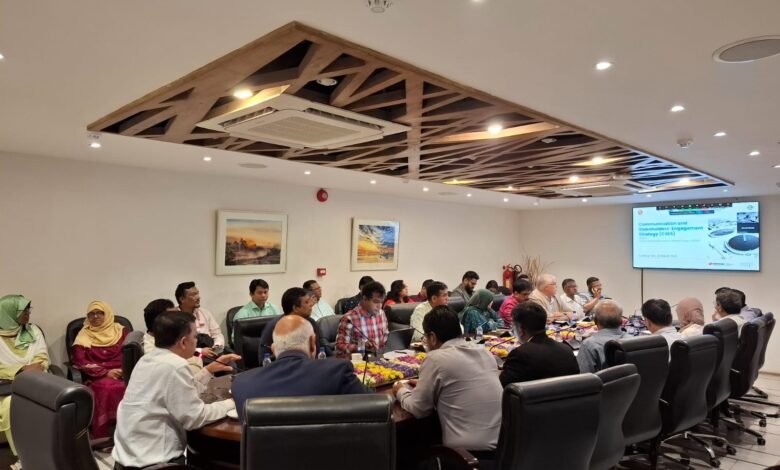World Bank mission to review Dhaka WASA’s DSIP

The World Bank Implementation Support Mission for the Dhaka Sanitation Improvement Project (DSIP) of Dhaka Water Supply and Sewerage Authority (WASA) is in the city to review the project’s implementation progress. The 10-member mission team, including 9 from the World Bank (WB) and another from the Asian Infrastructure Investment Bank (AIIB), started the mission activities on 24 October and will end on 1 November 2024.
The mission team consists of Khairy Al-Jamal, Team Leader; Harsh Goyal, Co-Team Leader; Arif Ahmed and Maharam Dakua—all Senior Water Supply and Sanitation Specialists; and Iqbal Ahmed, Environmental Specialist; Mulugeta Dinka, Procurement Specialist; Hasib Ehsan Chowdhury, Financial Management Specialist; Samera Chowdhury, Social Development Specialist; Anindo Kumar Chatterjee, Social Development Specialist; Team Associate Taskin Hafiz from the WB and Ronald Muana, Investment Operations Specialist Water from the AIIB.
The main objectives of the mission are to review the progress of all ongoing and planned activities, particularly packages for works and services; the implementation progress of the action plan agreed upon during the previous implementation support Mission in April 2024; fiduciary issues for the project and safeguards implementation; and disbursement progress and projections. The Mission also planned to meet the Administrators of both DNCC and DSCC to address road-cutting permits for laying sewer lines.

The mission would also like to have meetings with senior officials of the Local Government Division, Ministry of the Local Government, Rural Development and Cooperatives, Dhaka WASA, and Economic Relations Division, as well as other relevant stakeholders.
Dhaka WASA is implementing DSIP according to its Sewerage Master Plan 2012. The project objectives are to increase access to safely managed sanitation services in selected areas of Dhaka and to improve Dhaka WASA’s efficiency in sanitation service delivery.
22 km trunk mains, 462 km sewage collection pipelines, and 5 lift and pump stations will be built and rebuilt, and the Pagla Sewage Treatment Plan will be reconstructed through this project, which started in March 2023 and will end in 2028.




